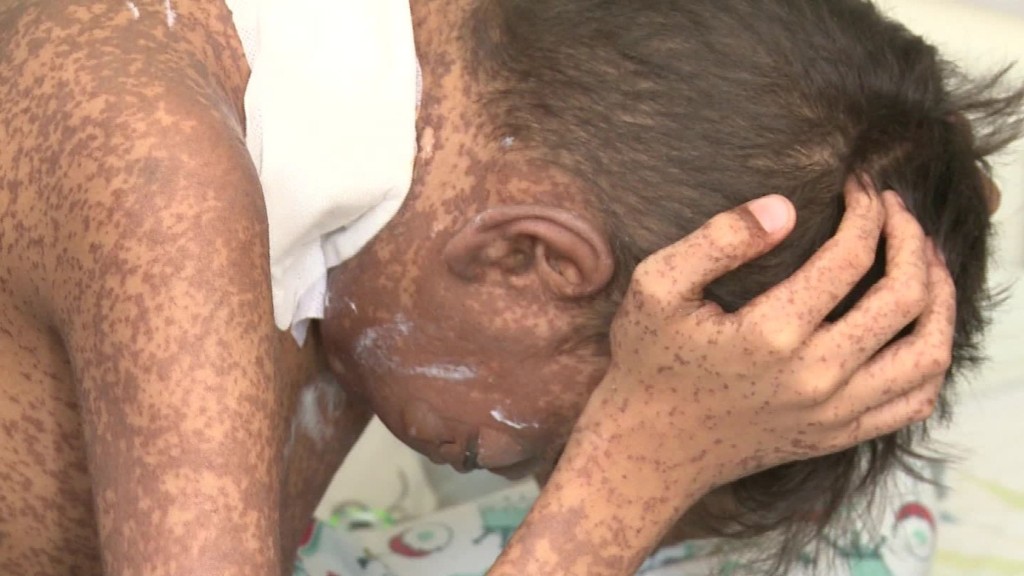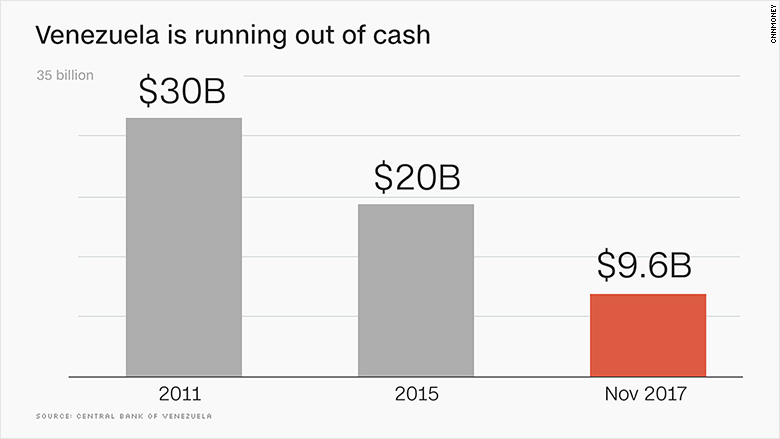
The Trump administration hit 10 more officials in crisis-ridden Venezuela with sanctions on Thursday, after recent elections there were deemed a fraud.
The officials are part of President Nicolas Maduro's regime. The United States and other governments have labeled him a dictator. Under the sanctions, the officials will have their U.S. assets frozen, and Americans are barred from doing business with them.
"We will maintain our vigorous efforts to sanction Venezuelan government officials ... unless they break from Maduro's dictatorial regime," Treasury Secretary Steven Mnuchin said.
Mnuchin has now sanctioned more than 30 Venezuelan leaders this year, including Maduro and Vice President Tareck El Aissami. The Trump administration has also barred banks from trading or buying newly issued Venezuelan debt.
The latest round of sanctions covers Ernesto Villegas, the culture minister, and Carlos Osorio, the former food minister. They were imposed after Maduro's party won regional elections in a landslide in October.
Related: Venezuela: We can't pay our debts anymore
The sanctions hit at a critical time for Venezuela, which is on the verge of default after it missed a major payment to bond investors this week.
A default would have grim consequences for Venezuela's 30 million citizens, who are already suffering through severe shortages of basic food and medicine. Children are dying in hospitals, and people are starving.
Investors would have the right to seize Venezuela's assets, such as oil, outside the country. Because the government relies almost entirely on exporting oil to make money, it could quickly run out of cash to buy food and medicine.
Maduro announced last week that Venezuela plans to restructure or refinance more than $60 billion in debt. Many investors and experts took that to mean that he will stop paying bondholders and default soon.
The debt crisis could move quickly in the coming days. A regulatory committee will meet in New York on Friday and could determine whether Venezuela has in fact defaulted. It's unclear whether the state-run oil company, PDVSA, made a payment due on November 2. The grace period ended this week.

Related: The chaos in Venezuela could get much worse
Another key date is Monday. El Aissami, the vice president, has invited investors to Venezuela to discuss future debt payments. But because he's sanctioned -- the United States accuses him of drug trafficking -- investors can't negotiate with him.
Bondholders can't speak with Venezuela's finance minister, Simon Zerpa, either. He was sanctioned in July.
"You can't sign anything with the president, the finance minister, the vice president and essentially anyone who would be at the meeting," says Fernando Freijedo, a Latin America analyst at the Economist Intelligence Unit research firm. "Logistically, [the meeting] seems impossible."
Although American investors are allowed to go to Venezuela for the meeting, it's unclear whether any will, given the conditions.
Related: Venezuela is blaming Trump for missed debt payments
Some experts say the meeting is a political maneuver: Venezuelan leaders can say they tried to negotiate with investors. Maduro has long said his country's problems are the result of an "economic war" waged by the United States.
"The invitation could either be a political tactic to blame bondholders or political propaganda to give the impression that they are resolving the debt problem," says Siobhan Morden, head of Latin America fixed income at Nomura. Morden wouldn't say whether Nomura holds Venezuelan debt.
Another investor who requested anonymity because he holds Venezuelan debt said he has no plans to go to Caracas because El Aissami is sanctioned.
Venezuelan bonds have tanked this week after Maduro called for a restructuring. The oil company PDVSA's bond maturing in 2019 tanked to 27 cents on the dollar from 48 cents last week, according to MarketAxess BondTicker.


